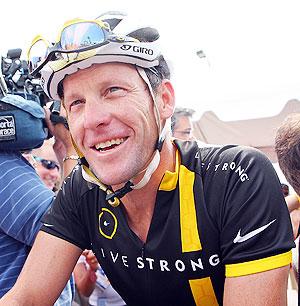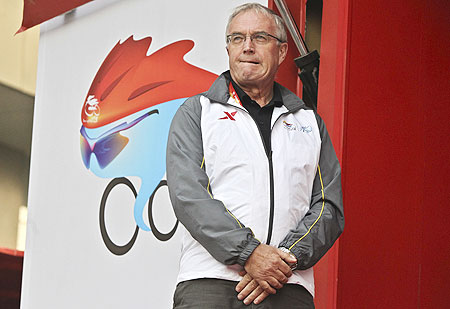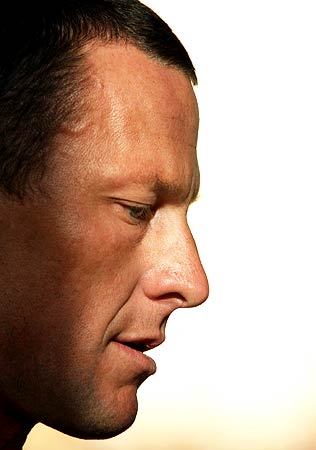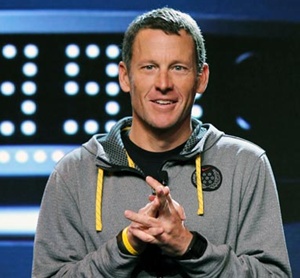Lance Armstrong was ditched from the Tour de France record books on Monday but the question of whether cycling should forget his tarnished legacy or use it as a force for change must be urgently addressed.
The International Cycling Union (UCI) has ratified the US Anti-Doping Agency's decision to strip Armstrong of his seven titles, leaving a crater in the Tour annals from 1999-2005.
"He deserves to be forgotten," UCI president Pat McQuaid said in front of more than a 100 journalists.
But can the retired American and his legacy really be forgotten for the sport to move on and try to forge a doping-free future?
As McQuaid said himself, his tenure as UCI president from 2005 has been riddled with doping scandals from the Floyd Landis affair in 2006 when the American was stripped of the Tour title through Alberto Contador's troubles where the Spaniard too lost his 2010 crown.
The cheats all followed in Armstrong's footsteps whether they knew the whole truth about the American or not and riders who worked with the 41-year-old are still in the peloton.'It does not mean clean sport is guaranteed for tomorrow'
Image: Pat Mcquaid, president of the Union Cycliste Internationale (UCI)Many American riders who testified against him and themselves to USADA received reduced bans and they will be back to race having vowed never to dope again.
The USADA report also showed other riders than Armstrong who wired large sums of money to sports doctor Michele Ferrari, who was banned for life for masterminding the former rider's doping programme.
"We haven't got to this stage of looking for other stuff that's in that report," said McQuaid.
"We are also awaiting news from Padua in Italy (another investigation into an alleged doping ring) which might implicate some riders."
For cycling to truly move on it has to use the Armstrong affair to further promote change rather than banish it as uncomfortable evidence of a bygone age when cheats ruled the roost.
"There must be more action to combat the system that took over the sport," Travis Tygart, the head of USADA, said in a statement.
"It is important to remember that while today is a historic day for clean sport, it does not mean clean sport is guaranteed for tomorrow.
"Only an independent Truth and Reconciliation Commission can fully start cycling on the path toward true reform and provide hope for a complete break from the past."'The fight against doping advances'
Image: Lance ArmstrongUCI lawyer Philippe Verbiest suggested that such a commission would be good "for all sports".
Cycling has indeed made great strides in combating doping in recent years but has received bad press because it is catching cheats, albeit sometimes slowly, while other sports struggle to match cycling's complex anti-drug procedures.
Irishman McQuaid, who confessed he never turned professional as a young rider in the 1970s because he feared he would have to dope, nevertheless sees a positive future for his beleaguered sport.
"As JF Kennedy said, quoting a Chinese saying: 'When written in Chinese, the word crisis consists in two characters: one represents danger, one represents opportunity'," he remarked.
"The fight against doping advances and the tools available to international federations in the fight against doping advance, and the tools available to us in the UCI now are much more advanced than in the early 2000s."
A culture shift has happened too, he believes, something born out by the strong anti-doping stances of many teams and the passionate verbal blasts handed out by 2012 Tour champion Bradley Wiggins to anyone who questioned his good faith.
'Anyway, he was a great champion'
Image: Lance Armstrong"Many riders are saying they don't want to be involved in the culture of doping, even ones who were witnesses in this affair admitted they did not want to be involved. The riders today have a different attitude," McQuaid added.
"We have to have faith in the riders today, the sponsors are heavily involved in the sport (...) We lost a very important sponsor, Rabobank, last week, that's true, but I'm quite confident that this sponsor will be replaced and the sponsors we have understand what is going on."
However, cycling has been at a crossroads before and not acted sufficiently to spare it from ridicule.
In 1998, the sport was plunged into a major crisis with the Festina doping affair and it failed to prevent Armstrong from then implementing what was regarded by USADA as the most sophisticated doping program ever seen.
The culture has also not changed completely. Some riders still regard Armstrong as a true champion.
"It was difficult for the UCI to have another response," France coach and former tour of Spain winner Laurent Jalabert told French radio station RTL.
"Anyway, he was a great champion. Whatever he could have taken, there were not that many riders at the same level. He had a huge talent. He may have made a mistake, he got caught, he has been punished for it.
"He is not the first but, whatever, he had outstanding skills."
Cycling has much more work to do.





Comment
article